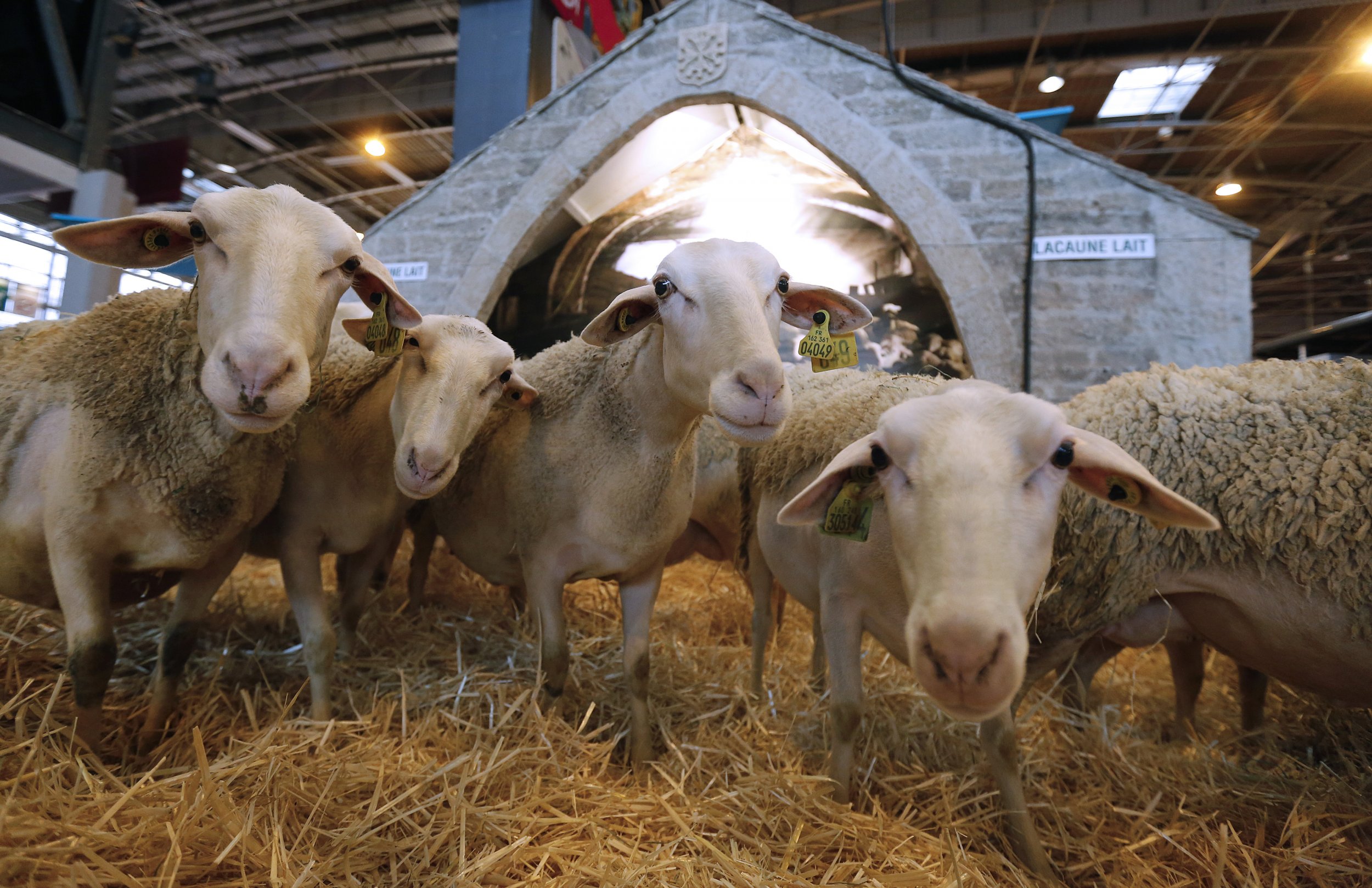
Human sewage is some of the cheapest fertilizer a farmer can find. It comes neatly packaged in pellets, which can be spread on fields to help grow the grass on which livestock will later graze. If you're a meat eater, it's probably best not to think about it. But if you're a meat eater who hopes to have children, new research suggests you (and regulators) might want to take a second look at the practice.
All the eggs that any female mammal will have in her lifetime are formed in the ovaries while she's still in utero. In a paper published March 2 in the journal Scientific Reports, scientists found that if pregnant sheep are grazed on sewage-fertilized fields, their female fetuses will develop fewer healthy eggs, and more unhealthy eggs, than their counterparts whose mothers grazed on commercial fertilizers. Fewer healthy eggs, of course, means lower fertility.
Something about the sewage sludge was messing with the reproductive systems of the next generation of sheep while they were still in the womb, the researchers concluded. And because humans are likely to eat the meat of sheep (or cows) grazed this way, "there are quite worrying implications for female fertility in the human," says Richard Lea, a reproductive biologist at the School of Veterinary Medicine and Science at the University of Nottingham and lead author of the study.
"There is a concern that by eating the meat from the sheep, we're taking onboard these chemicals," Lea says. "Given that these chemicals are very persistent, and they've survived the very intensive processing of the sewage to begin with, there's a very high chance" that they'll end up inside of us.
The male fetuses of animals grazed on fields fertilized with human sewage also appear to be affected. In 2005, researchers showed that grazing pregnant sheep on sewage-fertilized fields caused the reproductive system of their male sheep fetuses to develop improperly too. "The cell types important to testosterone secretion were reduced," Lea says.
Though Lea's recent study looked only at how the sewage fertilizer affected the sheep, and was not a toxicological assessment of the fertilizer itself, his team did identify certain constituents in the sewage that are known to impair hormone behavior in humans and animals alike. The sewage contained phthalates at levels high enough to significantly increase levels of the chemical in the fetuses' liver, which is one way researchers determine whether an animal has absorbed the chemical into its body. Phthalates are a class of plastic compounds found in all sorts of consumer goods, from plastic containers to shampoos to carpeting. Phthalates mimic estrogen in the body, messing with the body's hormone production, and have been connected with early puberty in girls, as well as numerous health problems, including asthma, attention deficit hyperactivity disorder, autism and breast cancer.
The researchers also found polychlorinated biphenyls (PCBs) in the sewage sludge, a broad group of chemicals that were banned from manufacture in the United States in 1977 but which were used so widely and persist so long in the environment that they're currently found in nearly "all outdoor and indoor air, soil, sediments, surface water, and animals," according to the Centers for Disease Control. PCBs also mimic estrogen, acting as endocrine disruptors, and exposure to them has been linked to impaired fertility, as well as a heightened risk for cancer and immune system disorders.
The sheep fetuses suggest there's a lot that should be studied about the practice of spreading sewage sludge on agricultural fields, Lea says. We still don't know, for example, if and how transmission would occur from eating the meat of animals grazed that way. "There's the way we metabolize chemicals, for example; it may be different from how the sheep metabolizes it."
But either way, Lea says, we should be taking another look. "At the end of the day, if we are putting our own reproductive capacity at risk, which I haven't proven here, by the way, then we should be taking steps to reduce that risk."
Uncommon Knowledge
Newsweek is committed to challenging conventional wisdom and finding connections in the search for common ground.
Newsweek is committed to challenging conventional wisdom and finding connections in the search for common ground.
About the writer
Zoë is a senior writer at Newsweek. She covers science, the environment, and human health. She has written for a ... Read more





